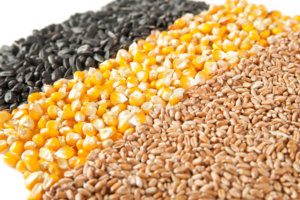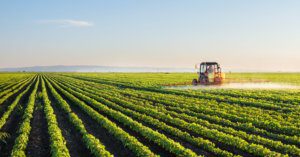
Ukraine in the 2018/2019 marketing year (MY, September through August) could reduce sugar output by 5.5% and boost its exports by 13%, according to the National Sugar Producers Association Ukrtsukor. “In the 2018/2019 season, Ukraine and Russia will see a decrease in sugar production – by 5.5% and 11%, respectively, but Belarus is expected to see growth by 13%. At the same time, sugar exports from Ukraine and Russia will increase by 13% and 7%, respectively, while Belarus will see a slight decrease – by 5%. In addition, tough competition for the sales markets will continue,” head of the analytical service of the Sucden Group of Companies (CIS) Marina Sidak was quoted as saying.
According to her, due to the negative demographic situation in Ukraine, there will be a decrease in domestic consumption. At the same time, there is a risk of a reduction in Ukrainian rail transportation of sugar due to a shortage of covered wagons.
As reported with reference to Ukrtsukor, Ukraine in the current MY will reduce sugar exports by at least 25% compared to the previous MY.
Production of sugar in the 2017/2018 MY increased by 6.5%, to 2.14 million tonnes.

The destination map of flights of Hungary’s low cost airline Wizz Air from Kyiv has been expanded by three new destinations – to Bremen (Germany), Riga (Latvia) and Billund (Denmark) where the Legoland center is located, as well as flights from Kyiv to Copenhagen (Denmark) and Frankfurt-Hahn (Germany). According to a posting on the airline’s website, flights to these cities will be launched from March 2019 (to Frankfurt-Hahn from December 14, 2018).
Two flights a week to Bremen and Billund will be serviced and three to Riga.
The cost of tickets to Billund and Riga starts from UAH 449 in March and UAH 909 later on less convenient working days, and from UAH 1,509 on weekends, to Bremen – from UAH 909 on working days and UAH 1,209 on weekends.
Thus, the total number of Wizz Air’s destinations from Kyiv would reach 26, including nine to Germany and two to Denmark.
In addition, flights from Lviv to Copenhagen will be serviced on Wednesdays and Sundays from March 3, 2019, flights to Frankfurt-Hahn – on Mondays and Fridays from December 14, 2018. The prices start from UAH 759.
Wizz Air also plans to increase the number of flights on the Kyiv-Lisbon route from two to three.

Kivshovavta Agro LLC (Kyiv region) belonged to Japan’s Kivshovavta is launching a silo with a storage capacity of 16,000 tonnes in the village of Kivshovata, Kyiv region, the company’s press service has reported. The press service said that with the launch of the silo the storage facilities of the company will be around 30,000 tonnes. Investment in the first and second stages of the silo totaled some UAH 60 million, and over UAH 100 million were sent to buy grain from other producers.
“The first stage of the silo was completed before 2017. In the past year it was reconstructed and expanded,” the company said.
Kivshovavta Agro seeks to boost land bank four times in coming five years, to 10,000 ha and build one more silo. Kivshovavta Agro LLC was founded in 2009. Its owner – SDGs Corporation – bought the company in Q4 2016. Kivshovavta Agro is the only enterprise of SDGs Corporation in Ukraine. The company plants wheat, sunflower, corn, soybeans. Its land bank is 2,500 ha.

The Agricultural policy and Food Ministry of Ukraine foresees in its farmland market concept that only Ukrainian citizens would be able to buy farmland.
According to a report on the ministry’s website, the basic provisions of the concept also set the maximum size of farmland, which can be owned by one person and anti-speculative mechanisms (the collection of a state duty) in case of resale of a land parcel within the first three years.
The document provides that current users are guaranteed the preservation of the land bank in case of a change of the owner of the land.
The concept introduces price benchmarks for land parcels during the first two years after the cancellation of the moratorium at a level no lower than the monetary valuation cost. Prices of all purchase/sale transactions for which property rights are registered are subject to state registration, which will allow the National Bank to regulate the mortgage market.
The document creates preferential conditions for the purchase of land by small players, primarily by farms, in particular through a mechanism for partial loan guarantees.

Hungary’s low cost airline WizzAir is interested in flying to the Kherson airport, Wizz Air Executive Vice President and Deputy Chief Executive Officer Stephen Jones said at a press conference. “We had a very interesting and productive meeting with representatives of the Kherson airport. We are working on this issue. I am considering the possibility, but if I’m not mistaken, it is very important to have a runway in Kherson to service our planes. This is an excellent region,” Jones said.
He also said that he was pleasantly surprised by the professionalism of the airport team and expressed hope for future cooperation, but refused to specify the possible dates for the beginning of this cooperation.
WizzAir is the largest low cost airline in the Central and Eastern Europe. It offers flights from 142 airports in 44 countries. Its fleet consists of 100 Airbus A320 and Airbus A321 planes.